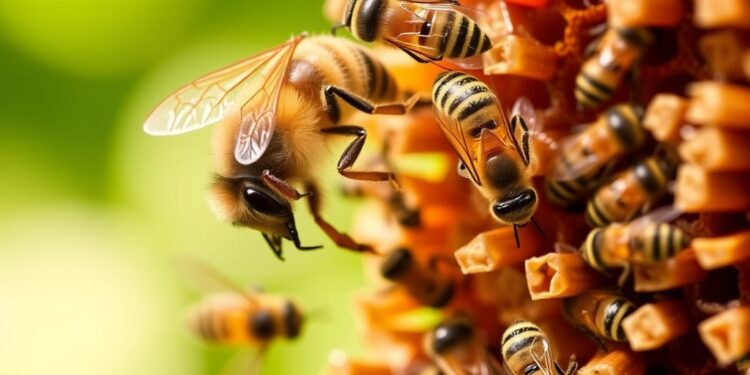Honey bee populations have been suffering from alarming mortality rates, primarily attributed to the parasitic Varroa mite, scientifically known as Varroa destructor. A recent study conducted by researchers from the University of Exeter has shed light on the critical importance of timely intervention in managing this pest. The findings underscore that timely and appropriate treatment can significantly mitigate honey bee colony losses, a pressing issue for beekeepers globally.
The study highlights a significant problem: beekeepers who do not follow recommended treatment timelines are facing considerably higher losses of bee colonies. This correlation between treatment timing and colony survival emphasizes the need for education on proper pest management strategies. According to Dr. Thomas O’Shea-Wheller, the lead author of this important research, this revelation about the timing of Varroa treatments is both crucial and somewhat unexpected.
The researchers analyzed data from more than 4,300 beekeepers, representing a staggering number of nearly 18,700 colonies from the years 2016 to 2020. One of their key findings was that the type of treatment administered is not the only factor predicting colony loss; much more critical is the adherence to treatment schedules. This insight could lead to changes in recommendations and training for beekeepers to prevent losses due to mismanagement.
Dr. O’Shea-Wheller explains the significance of timing with precision. The Varroa mite populations increase rapidly, following an exponential growth pattern over the beekeeping season. Critical treatment times are essential; if treatments are applied too early or too late, they simply won’t be effective in controlling the mite populations. The stakes are high: the wrong timing can lead to unchecked mite reproduction and, consequently, the collapse of colonies.
Another alarming outcome of mismanaged treatments is the potential for the Varroa mites to develop resistance to the medications used to control them. Dr. O’Shea-Wheller draws parallels between the misuse of mite treatments and the ongoing issues surrounding antibiotic resistance in humans. As mite populations evolve due to improper treatment, the fight against this pernicious pest becomes a continuous battle, further jeopardizing honey bee populations.
The study raises an essential question about how to effectively communicate the importance of treatment schedules to beekeepers. Given the high stakes, it is vital for beekeepers to understand that each treatment protocol must be followed precisely as directed to ensure the longevity of their colonies. As the research suggests, improved education and adherence to these guidelines could drastically cut honey bee mortality rates linked to Varroa infestations.
Moreover, the study’s publication in the journal Entomologia Generalis marks a significant contribution to apiculture literature, as it not only addresses the critical issue of Varroa management but also provides empirical evidence of its widespread impact. The findings should serve as a wake-up call for beekeepers, urging them to refine their approaches to pest control and actively engage with the research community for updated recommendations.
In conclusion, Varroa destructor has long posed a severe threat to honey bees, leading to cascading consequences for both the environment and agricultural practices reliant on these pollinators. Timely and effective Varroa treatments represent a vital area of focus for researchers and beekeepers alike. The success of managing honey bee health depends heavily on this collaboration.
As researchers continue to investigate the complexities of Varroa mite management, beekeepers must adapt their practices based on the latest findings. The implications of this study extend beyond simple numbers; they speak to the interconnectedness of ecosystems and the necessity of protecting honey bees for the sake of biodiversity and food security globally.
For beekeepers experiencing ongoing challenges with hive management, investing in further education and embracing the findings of this critical study could provide the necessary tools to combat mortality rates effectively and sustainably. The future of honey bees may well depend on how well we can respond to the issues highlighted in this research.
Subject of Research: Timeliness and adherence in Varroa mite treatment
Article Title: A large-scale study of Varroa destructor treatment adherence in apiculture
News Publication Date: 3-Feb-2025
Web References: 10.1127/entomologia/2024/2758
References: None
Image Credits: Credit: Fera Science
Keywords: Honey bees, Varroa mites, pest management, colony survival, treatment adherence, apiculture.
Tags: beekeepers treatment adherencebeekeeping best practicescolony loss mitigationeffective pest control for beeshoney bee conservation strategieshoney bee mortalitypest management educationresearch on bee populationstimely treatment interventionsUniversity of Exeter study on beesVarroa destructor impactVarroa mite management





